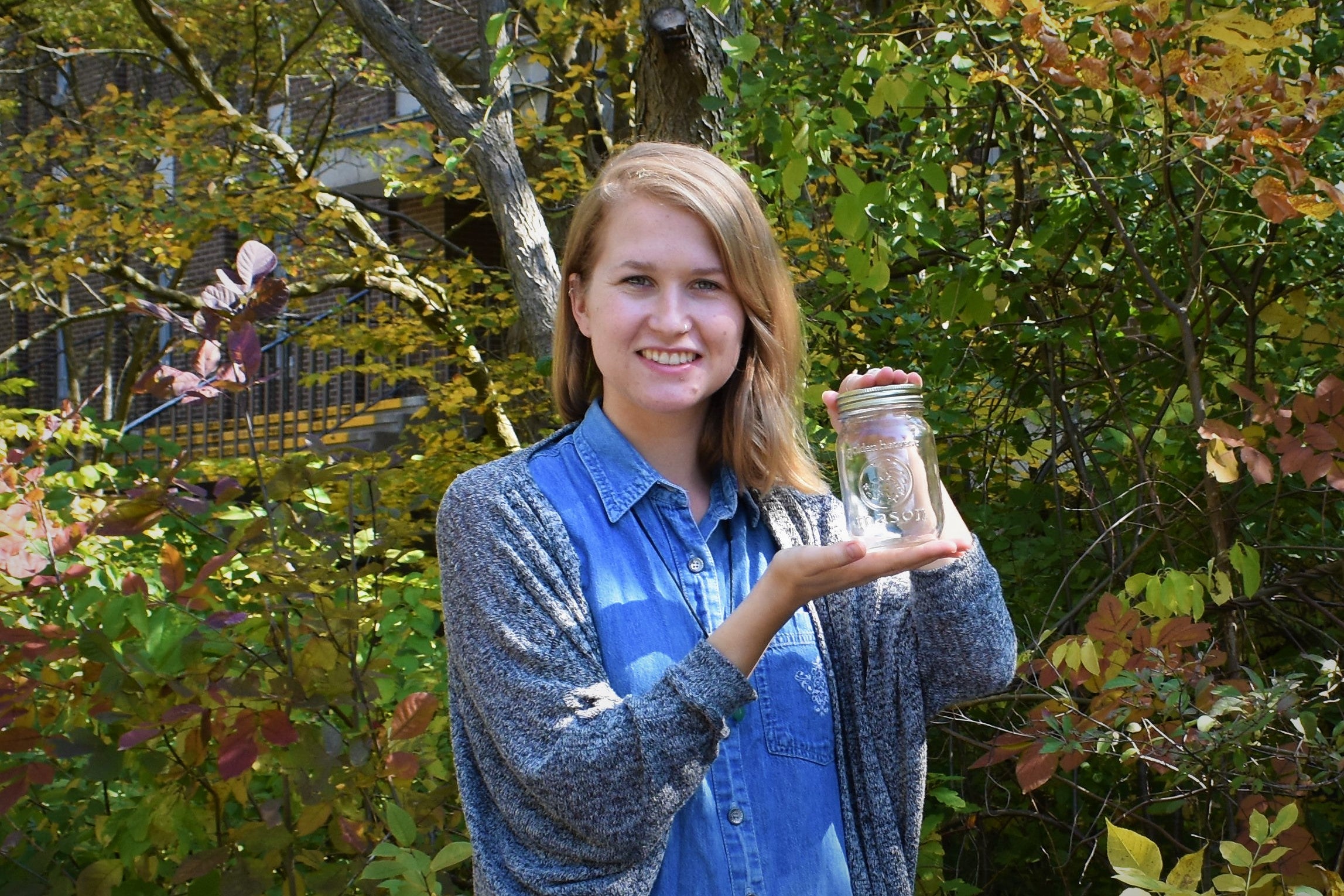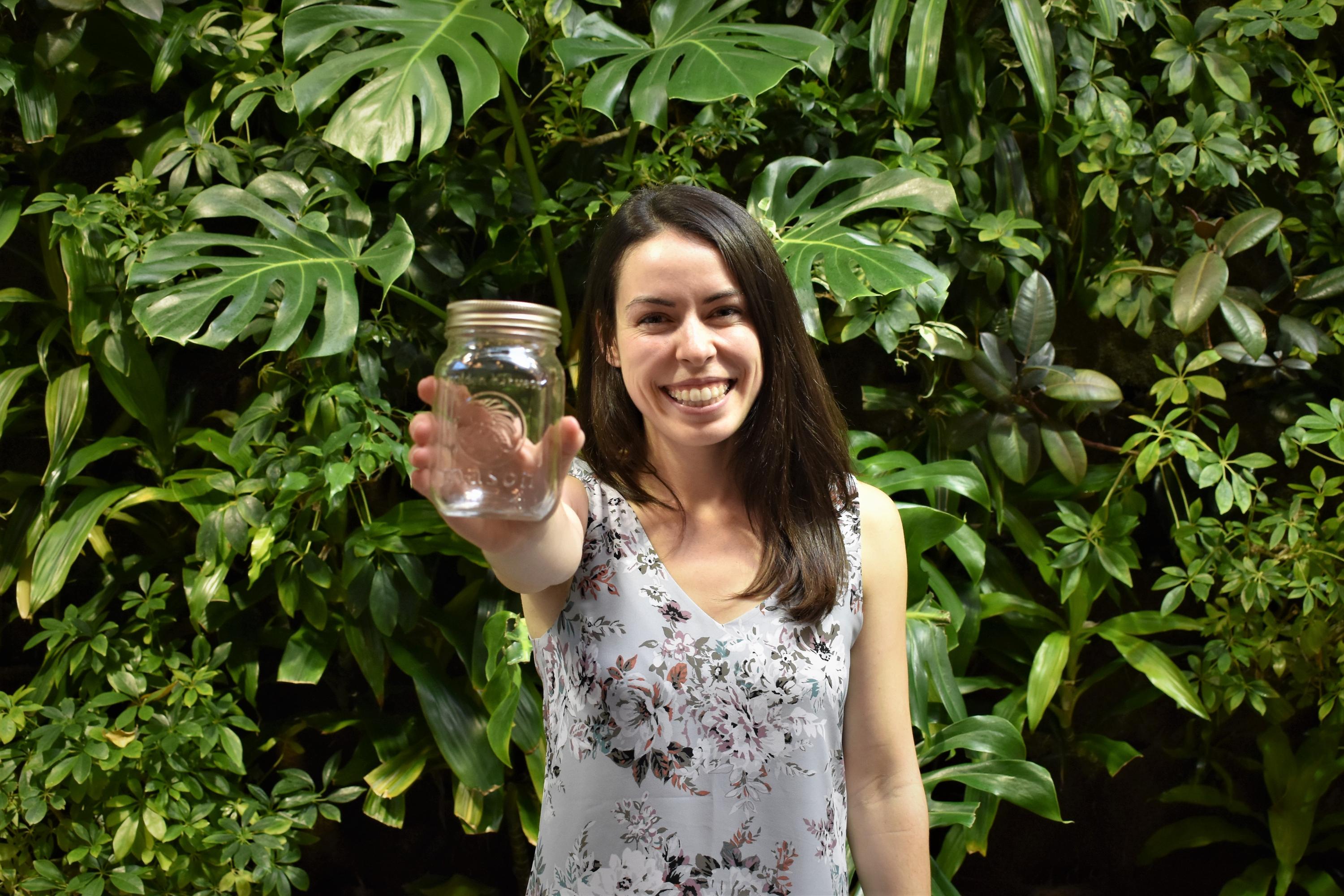Beth's preparation

Hi, I am Beth and I am the Sustainability Projects Coordinator this term.
This is my first ever zero waste challenge. I’m a little apprehensive but ready to finally be taking the plunge having put off this challenge for years. I’m a planner, so over the past month I have made sure to be a little more mindful to evaluate how I shop and throw away my garbage. Having lived in apartments for a few years, I haven’t been used to the concept of my own compost bin. I am happy to have moved into a house where I can easily compost, so one of my first tasks in preparation was to buy a compost bin.
My preparation for the Zero Waste Challenge:
Buying more containers: After thinking over my daily disposable waste, I realized that on occasion, I would wrap something up in cling wrap (which is not recyclable), so I bought a few more reusable glass containers and bags. I also decided to leave a reusable container at the office just in case I wanted to eat out and they didn’t supply recyclable or compostable containers.
Zero Waste feminine products: I have always been a bit skeptical about using something like the Diva Cup but now is the time to take the plunge. I have heard mixed reviews but for me, it makes more sense to reduce waste and also save money – I just needed a nudge to buy one. Apparently over 20 billion sanitary products end up in the landfill every year and take centuries to biodegrade and are made of plastic fibres!
Produce bags: I am still yet to buy these and haven’t found a cheap option. For now, I am thinking I may reuse the produce bags that I got on previous shops, does that count? That being said, I am often that person at the checkout who hands over their potatoes or zucchini straight to the cashier. They get put into my reusable shopping bag and should have a good wash before consuming anyway.
Food packaging: Another thing to think about is the type of diet you have and what waste you are creating. Being vegan for almost 6 years has pushed me to buy a lot of fresh fruit and vegetables and I often use tins of beans and grains. However, most pasta and grain packages are non-recyclable so I will need to start buying them from Bulk Barn in a reusable container. Granola bar wrappers are also non-recyclable so I will have to keep those to a minimum and stick to snacking on bulk nuts or fruit. This also plays to my advantage as bulk food tend to be healthier than packaged alternatives.
Rethinking my toiletries: After reading up a lot about wasteful household items, I realized that my toothbrush wasn’t doing any good for the environment, so I got my hands on a biodegradable tooth brush that works just the same (you can also purchase compostable toothbrushes that can go in the green bin but as this one is biodegradable, it has to be thrown in the garden once I am down with it – a bit of a strange concept to get my head around).
Andrea's preparation

I’m Andrea and I’m the Sustainability Engagement Coordinator in the Sustainability Office.
This is my third year doing the zero waste challenge, but it’s my first time challenging myself to longer than a week. I’ve been so inspired to live a more environmentally-conscious life in my new role, so I’m excited to take this challenge on for a month and see how well I do!
Where am I starting from and what are my goals?
I’m going to be taking this challenge at work and at home. At work, I don’t really throw much into the garbage so I think I will have a relatively easy time keeping my jar empty here! At home, we already live a relatively low-waste lifestyle, putting out a kitchen sized bag of garbage every 3-4 weeks and our green bin and recycling bins weekly. But I think we can do much better!
For this post, I’m going to focus on how I’m planning to reduce my waste at home. I looked at our garbage and found that, not surprising, most of what was going in there most often was unnecessary ‘nice-to-have’ items, like chips (we love our chips!), packaging from meat and fish, and some pre-made salad bags that are not recyclable.
In addition to my garbage, I’m going to focus on reducing single-use plastics. I’ve learned that a shockingly low percentage of plastic actually gets recycled after you put it in your blue bin, so I’m going to be mindful of purchasing plastic products only when necessary. There are great alternatives for fruit and vegetable packaging, like visiting a farmer’s market and supporting local produce! We’ll also be bringing our own jars in hopes of getting our meat straight from the butcher.
*Caveats (my ‘mulligan list’): We have a few items that I don’t have good alternatives for, which I am going to exclude from my personal challenge. These include our dog food bags which are not recyclable (I emailed the company to ask if there was a bulk or other alternative, to no success) and my Invisalign trays (which I started long before this challenge!). We’re also finishing up some home renovations since we just moved into our new house, but we’re trying to be as mindful as possible when purchasing materials for ones that have recyclable packaging, at least. I’m going to give myself some grace in these three areas since I cannot change them at the present time – but will keep looking for alternatives.
How I’m getting ready
Containers: I hit the jackpot last year when my dad bought me a huge set of glass Tupperware for Christmas. You know you’re an adult when you get giddier about Tupperware than almost any other present. Anyone else? I’ll be using these containers and other containers from around the house for shopping and prep over the next few weeks. If we decide to eat out, I’ll also bring my own containers so I don’t need to use any disposable takeout containers (and for leftovers!).
Meal planning: I’ve found that most of the waste I produce comes from food packaging from the grocery store. More specifically, if I don’t plan my meals ahead, I often end up wandering the aisles at the grocery store looking for something relatively easy, and more often than not, that means that I’m buying some form of packaged goods that are non-recyclable. I’m also guilty of buying fruit, vegetables and muffins in plastic containers, so I’m going to try to switch to bulk alternatives. When I don’t meal plan, I also tend to go out to grab takeout which is less healthy and often involves a takeout container. So, I’ll try to limit eating out but if I do, I’ll bring my own container!
Grocery shopping: I’ll be heading to the Kitchener Market on Saturday morning to stop up on groceries for the week. We’ll bring our own large reusable bags and smaller produce bags so avoid as much unnecessary packaging as possible! And we’ll also be checking out Bulk Barn for snacks to satisfy our craving for salty snacks.